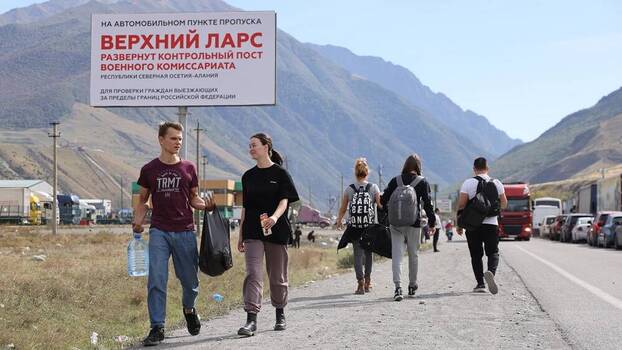
The outbreak of Russia’s war in Ukraine one year ago has resulted, among other humanitarian problems in the entire region, in an influx of Ukrainians and Russians to Georgia. While Georgia often was not the first destination for Ukrainian refugees, the country became a place of refuge for Russian citizens who felt unsafe in Russia due to Georgia’s easy accessibility for the Russian population.
Georgia, with its own population of less than 3.8 million people, became a temporary home for more than 300,000 Russian citizens and is the most popular destination for Russian political migration at the moment. This fact has created quite a new situation in Georgia, a country which is itself in a state of territorial conflict with Russia.
Georgian society has manifested a great deal of support for Ukraine and Ukrainian refugees, while many are cautious in regards to the newcomers from Russia. Nevertheless, the Russian community has created quite an intensive public life and, in a way, a cultural enclave in Tbilisi and Batumi — the two main centres where both Russian and Ukrainian newcomers settle. In contrast to the Russian newcomers, Ukrainian refugees are less visible in Georgia’s public space, apart from the protests and charitable marches organized in Batumi.
The articles that follow are the result of a research project funded by the Rosa Luxemburg Foundation and implemented by the Forum for Intercultural Dialogue in Georgia in the fall and winter of 2022. The main goals of the project were to bring Georgia’s public and scholarly attention to the issue of the new population coming to Georgia as a result of the war and their needs, as well as to attempt to build dialogue between three sides of this problem — Ukrainian refugees, Georgians, and Russian newcomers — with the help of roundtable discussions following in-depth anthropological research.
The project team conducted anthropological research with in-depth interviewing in two localities, Tbilisi and Batumi, where the enclaves are the largest. More than 40 interviews were collected as the result of the field research. The interviews mostly focused on the problems and social needs of newcomers, as well as their views, the attitudes towards each other, and towards the locals. They were also asked whether they form ties and whether they plan to stay in Georgia or intend to go back and under which circumstances.
The following three articles represent three different views and analysis of the collected data from the individual perspective of each particular researcher.